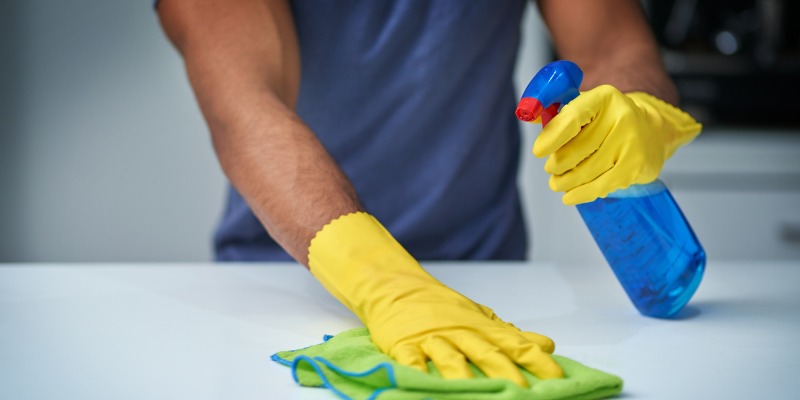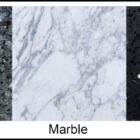There are a few general rules to follow when cleaning a quartz countertop. Avoid using abrasive sponges. Use non-abrasive cleaners or microfiber cloths instead. Vinegar should not be used on your quartz countertop. The acidity level of vinegar may be too high for your quartz countertop. Abrasive cleaners can cause deterioration and dullness. Do not use harsh chemicals such as bleach or ammonia.
Avoiding abrasive sponges
To safely clean your quartz countertop, you should avoid using abrasive cleaners or scouring pads. You can use mild soap and water to wipe up spills and dirt, but avoid abrasive sponges or scouring pads. While it might seem tempting to use a cleaner that is formulated for glass countertops, it may damage the material. To avoid this problem, be sure to read the label of any cleaning solution.
If you do use an abrasive sponge, rinse it with water after scrubbing your countertop. This step will remove any soapy residue that might leave your counter looking dull and unappealing. If you have a large buildup on your quartz countertop, you can wipe it away with a wet paper towel and then use a flexible plastic scraper to remove it. Always remember to avoid metal scrapers because they can scratch the finish.
Although the quartz countertop is durable and low-maintenance, it is still prone to scratches. To avoid small scratches, you should clean it with a damp sponge dipped in dish detergent or with a microfiber cloth. Although quartz is not porous, acidic or corrosive substances like vinegar and citrus juices can damage the surface, so it is vital to avoid these abrasive materials while cleaning your quartz countertop.
When cleaning your quartz countertop, you should use a nonabrasive cleaner with a low pH. Although you can use diluted cleaners, they will make it more likely to require re-sealing. However, you should never use abrasive sponges or steel wool because they may scratch the sealant. It is recommended to use soft microfiber cloths instead.
Using non-abrasive cleaners
If you want to keep your quartz countertop looking fresh, you must avoid using any abrasive cleaners. This is because abrasive cleaners can leave small scratches on your countertop and can ruin the shine of your surface. Instead, you should use a soft microfiber cloth. Microfiber cloths are highly absorbent and will not leave watermarks on your surface.
To clean your quartz countertop, you must start by dampening the non-abrasive sponge in water. Once you have rubbed the surface with soap, you should squirt the water using a zigzag pattern. This will help loosen any caked-on food or crumbs. If you notice any stubborn buildup, use a plastic putty knife to scrape off the food.
When cleaning quartz countertops, make sure that you avoid using hot pads or any other abrasive items that could scratch the surface. While quartz countertops can withstand high temperatures, overheating them will affect the resin bonds and change the color of the countertop permanently. When cleaning quartz countertops, use a soft cloth or sponge instead of steel wool. If you don’t have either of these items, you may want to invest in a trivet for your countertop.
If you don’t have a cleaning solution, you can purchase a degreasing cleanser formulated for quartz countertops. These will remove grease and stains. You can also try using an oil-based cleaner such as Goo Gone to remove ink and permanent markers. Always rinse thoroughly with warm water after using these products. Alternatively, you can use a mixture of acetone and Ajax. Dilute the Ajax so that it doesn’t leave any abrasive residue.
Using microfiber cloths
Microfiber cloths are ideal for cleaning a quartz countertop, as they are spongy, absorbent, and easy to dry. However, these materials can be scratched easily. If you have an especially stubborn stain, you can use a plastic putty knife to remove it. For light messes, you can try a microfiber cloth dampened with dish soap and water.
Quartz is also impervious to stains, but spills still occur. Even with a nonporous surface, dust, and food crumbs can accumulate. Using a damp microfiber cloth to wipe up the mess is the best way to keep it from staining and dulling the countertop’s surface. However, you should remember that using water to wipe up a stain may leave a streak on a darker quartz. If this happens, you should clean up the stain with a microfiber cloth immediately.
If you have a kid who likes to make art on your quartz countertop, you should be prepared for this. While water and dish soap are good enough to clean most stains, some stain types require special attention. For example, if a child has a tendency to draw on the surface, they should avoid placing sticky items on it. While a poultice won’t remove sticky substances, Goo Gone will. This product costs around $5 at Home Depot and can help you get rid of the stains that remain.
For best results, you should use disinfectant cleaning products on your countertops. These products can be bought commercially or home-made. Make sure that you apply the solution to the entire countertop. Make sure to use only a small amount as too much water can stain the surface and ruin the finish. If you are using an alcohol-based cleaner, the cleaning solution should be diluted with water to avoid streaking.
Using vinegar
Using vinegar to clean quartz countertops is a great way to remove stains without having to use harsh chemicals. You can mix 1 part vinegar with 1 part water and apply it to the stain. Rub the stain with the sponge in an “S” pattern, removing as much dirt as possible. If the stain is stubborn, try a magic eraser or other nonabrasive material. Rinse with water and pat dry with a clean towel. For tougher stains, try a degreasing cleaner. These cleaners are specifically designed for quartz use and usually come with specific instructions.
Using vinegar on a countertop is a great way to remove rust stains, but you should remember that it will corrode the surface if used too frequently. A better solution is a mixture of vinegar and warm water, which will make the cleaning process easier. Afterward, use a microfiber cloth to remove the residue. You can also use a putty knife to scrape off the sticky substance from the surface.
If you have a stain with a higher acidity, lemon juice is an effective cleaner. Lemon juice will remove even the toughest stains, including nail polish. If you have a permanent marker stain, lemon juice can dissolve it. If you have white toothpaste at home, use it to clean the stain. After applying vinegar to the stain, you can dry the area with a microfiber cloth.
While cleaning with soap and water is an excellent option, you should be careful to rinse the solution thoroughly. Even if you do not notice a stain, it will stain if left overnight. It is crucial to thoroughly clean quartz countertops after spills. You can also use vinegar to remove stubborn grease. Always remember to rinse the surface with water and soap to avoid leaving any soap residue. This is an inexpensive and safe way to keep your quartz countertops clean.
Using oil-based cleaner
If you have a quartz countertop, you probably don’t want to use an oil-based cleaner to clean it. Oil-based cleaners can dull the shine of a quartz countertop. Instead, you should use a non-abrasive sponge to wipe it clean. Make sure that the sponge doesn’t contain an abrasive agent, as that can scratch the surface. To clean an oil-based cleaner from a quartz countertop, you need to use a non-abrasive sponge.
Generally speaking, you can use diluted bleach to clean a quartz countertop. Do not use high-pH or alkaline cleaners. However, you can use degreasing products on it, as long as you follow the instructions. For stubborn stains, you can use glass or surface cleaner. Using a razor blade to scrape off paint is another good way to get rid of a stain.
Generally speaking, daily wiping is sufficient. But if you want to maintain the look of your quartz countertop, it’s recommended that you do a deeper general cleaning on it every so often. A non-abrasive surface cleaner should be sprayed on your quartz countertop and left for about 10 minutes before using a nonabrasive sponge to scrub the surface. There are some basic dos and don’ts when cleaning a quartz countertop.
Cleaning a quartz countertop is simple. It’s best to use a dry cloth and a soft sponge to remove dirt and grime. Then, follow it with a mild detergent. If you’ve used an oil-based cleaner, it might leave streaks on the surface. In either case, it’s best to avoid oil-based cleaners as these contain harsh chemicals. But for the occasional spill, it’s worth using a dry wipe instead of oil-based cleaner.





